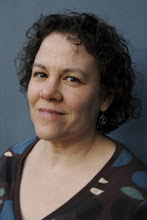Publishers Lunch says that Amazon CEO Jeff Bezos said "Kindle sales are now 35 percent of books where we have Kindle editions" and print editions of the same title. PL says this is “more than three times the ratio that Amazon had reported previously, first in October and then again in February when Kindle 2 was announced. The initial reception at numerous trade publishers, executives tell us, was deep skepticism. But as sales departments crunched numbers, in many cases the data has confirmed the general range of Amazon's report.”
The most interesting part of the article was this unanswered question:
“Do Kindle Sales Cannibalize?
The big unresolved question for many houses is whether this spike in Kindle sales is additive or cannibalistic. (Amazon did not update their contention from last year that Kindle customers "buy the same number of physical books going forward as they did before they owned a Kindle. And then incrementally, they buy about 1.6 to 1.7 electronic books.") One executive believes strongly that, while their house's total Amazon sale on big books is rising when you include Kindle and print editions, the Kindle spike is taking market share away from other retailers' print versions (though this point will be hard to confirm until after returns are taken on recent releases). Other houses are just beginning to analyze the extent to which these sales are additive or cannibalistic.”
The NYT had an interesting article on ebook pricing. One sentence caught my eye: "But publishers argue that those costs, which generally run about 12.5 percent of the average hardcover retail list price, do not entirely disappear with e-books."
So if my current hardcover sells for $24.99, then as an ebook version, it should cost $21.86.
But it doesn't. It costs $9.99.
So how does that work?
Here's the answer, according to the article "For the moment, say some publishers, Amazon is effectively subsidizing the $9.99 price tag for new book titles in digital form by paying publishers the same $13 it pays them for a new hardcover title with a list price of $26. It’s a classic “loss leader” situation. Although Amazon won’t comment on the arrangement, the online bookseller is using low-price e-books as a lure to persuade consumers to pay $359 to buy a Kindle, or $489 for the new, larger Kindle DX."
But if the Kindle establishes itself as the dominant player in the ebook market, how long will Amazon be willing to pay publishers less? And if they pay do pay publishers less, you know that the publisher is giong to turn around and ask the authors to take less.
Lots more food for thought here.
Monday, June 8, 2009
Subscribe to:
Post Comments (Atom)

No comments:
Post a Comment